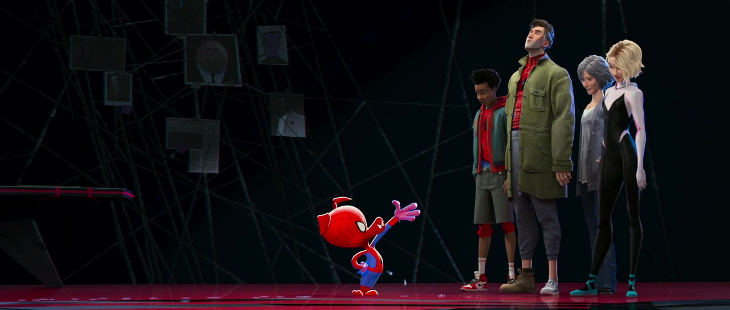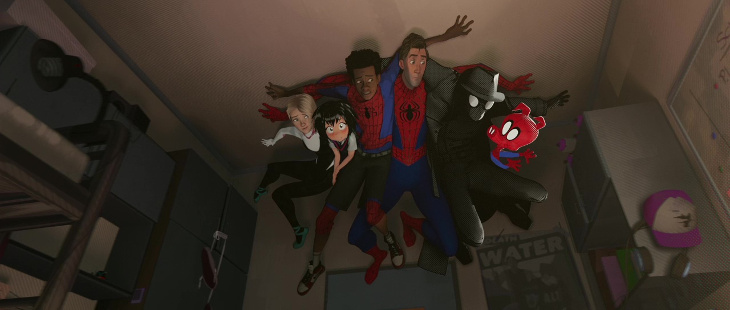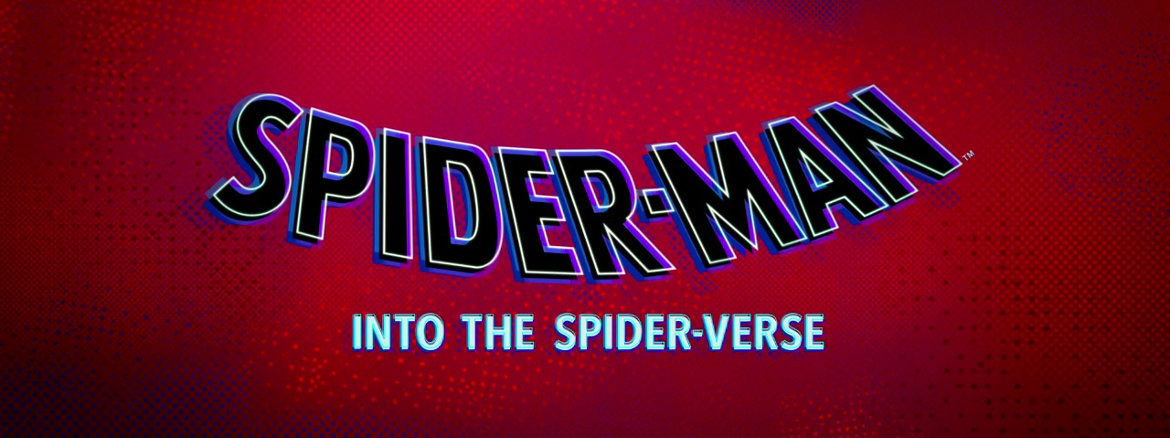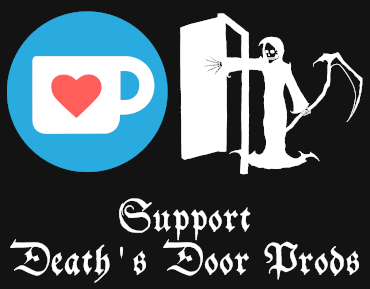
“Remember, what makes you different is what makes you Spider-Man.”
Spider-Man: Into the Spider-Verse is a bizarre exploration and celebration of Marvel’s most influential character from one of the key minds behind the 21 Jump Street films and the Lego series, Phil Lord. While it’s an intriguing concept with a strong voice cast, I’ll admit I retained a degree of skepticism going in to the film. Fortunately, I can attest to the fact that Spider-Man: Into the Spider-Verse is a fun romp with some occasionally strong pathos that’s only mildly undermined by the visual and storytelling habits of its production team. It also features one of the strongest Stan Lee cameos, the quality of which is even further accented by his passing, and, for some, might be worth the price of admission alone. Ultimately, Spider-Man: Into the Spider-Verse is a gem of a movie, and sits comfortably with the rest of its screenwriter’s work as potentially one of the best films in an already impressively solid filmography.

As a writer, Lord has a great talent for humor, but that also leads to the most apparent limitation in his films. Lord’s previous works, while hilarious, could be characterized as irreverent and potentially chaotic to a fault during the set pieces. Both of these issues are present in this film, but they’re less prominent than they were in the Lego Movie. While I loved the Lego Movie, I don’t feel it could be accurately described as an emotional powerhouse. It contained introspective themes about creativity and childhood, but that often took a backseat to just having fun. Spider-Man, while certainly a character that understands the concept of fun, is also defined by personal tragedy and responsibility. Perhaps the greatest strength of Into the Spider-verse’s script is it never forgets that, and does a solid job of balancing those two aspects of the hero. Our primary lead is Miles Morales, voiced by Shameik Moore, as he deals with his newfound abilities and tries to find his sense of identity in the wake of the tragedy that birthed him. However, this process is further complicated when he finds out an experiment by the Kingpin, voiced by Liev Schreiber, has resulted in multiple versions of Spider-Man to be drawn into his universe. Admittedly, the weirder versions can be a little distracting. The group will be having a serious conversation only to have Spider-Ham pop in and make a Deadpool-esque observation. Still, it works more than it doesn’t and the casting is almost pitch perfect for the characters. John Mulaney’s quirky vocal delivery is absolutely ideal for Spider-Ham, Hailee Steinfeld sounds right at home as the punk-rocker Spider-Gwen and Nicholas Cage captures the comically hardened qualities of Spider-Man Noir perfectly. The only casting that I was iffy on was Chris Pine as the original Spider-Man from Miles’ universe. He doesn’t do a bad job by any means, but his voice carries more weight than I’d have expected and when the movie revealed that the character was supposed to be 26 it actually drew me out of the film for a moment since it didn’t mesh with the vocal performance.

The visuals are a spectacular homage to comics with word balloons & sound effects popping up and shading tones being visible in the shadows. I saw this in a 2D screening, but I suspect this would be a particularly enjoyable 3D viewing, and, should I see it again once it receives a proper release, I might consider dropping the extra cash to experience it. It isn’t uncommon for the larger action scenes can be a bit too busy, with multiple characters and multiple moving parts vying for attention, and that serves as an oddly appropriate reflection of one of the narrative shortcomings that I feel can be traced back to the source material rather than Lord. The basic mechanics of the movie’s universe can be a little confusing at points. When Miles is discovering his powers for the first time, he actually refers to a Spider-Man comic which is, I’ll acknowledge, something that makes a modicum of sense in the Marvel universe, but gets really confusing in that moment, because we’re already dealing with alternate universes and bending the fabric of space and time and he is reading Spider-Man’s origin story. Essentially, when combined with the energetic style that the film aims for, the inherently warped aspects of the film’s premise can lead to viewers to be unclear on aspects of the narrative and it may be tricky for some to quickly regain their footing.
Before I wrap up, a few Notes and Nitpicks:
- I had seen in advance that Liev Schreiber would be voicing the Kingpin in this movie, but I was quite impressed by the performance. I wasn’t as big a fan of his character design as it paints him as being ridiculously large, and I found it didn’t mesh with the other personas around him.
- Lily Tomlin voices what might be the most awesome, baseball-bat-wielding interpretation of Aunt May that I can recall. However, I do question how no one noticed the shed in her backyard emits a bright light when it is opened…
- I’d be remiss if I didn’t highlight Jake Johnson’s turn as an older, schlubby, burnt-out version of Spider-man who serves as Miles’ mentor. Johnson does a great job of balancing the lazy comedic side and the more heartfelt depression of the character.
- Oh, and this movie’s Doc Ock is great. Also, Mahershala Ali is awesome in this… You know what? Look at the cast list. Those people. They did great jobs.
- The movie favors a more cartoonish version of Sp//dr than her comic book counterpart. Speaking personally, I found the blatant anime homage to be a tad annoying in this version, but that falls more in the “your mileage may vary” territory.
- Favorite alternate Spider-character in comics would probably be… Spider-Gwen for me.




Add comment